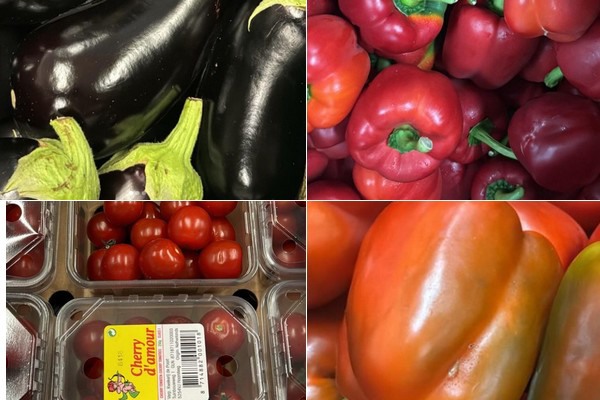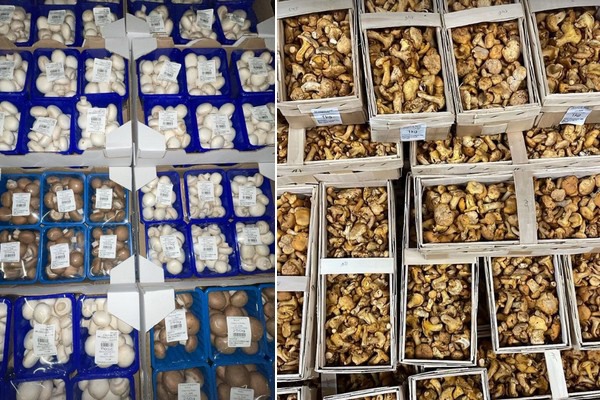Despite the holiday season, the summer lull in the fruit and vegetable sector was quite manageable this year. "We have been able to record consistently good sales, not only for fruit vegetables, but in general, which in turn is due to our customer growth in recent years," says Murat Günes, buyer and seller at Westfalen Frischdienst GmbH in Hamm, Germany. The quantities of fruiting vegetables on offer have always been sufficient to meet demand, and at relatively high prices. "The price level across the range has risen again compared to the previous year, but the same applies to logistics costs and tolls. At the same time, however, there are also items that are offered at lower prices, such as chanterelles during the first phase of the season."
The Hammer company mainly acts as a wholesale partner for caterers and canteen kitchens. "In terms of unit and package numbers, we have grown by around 20 per cent compared to the previous year. Fruit and vegetables account for around 25-30 per cent of our total turnover. However, we try to offer caterers everything from a single source. Items such as cutlery and porcelain are new additions to our range. In the fruit and vegetable segment in particular, we expanded our range last year to include cresses."

Insight into the Westfalen Frischdienst GmbH fruit and vegetable range
Field vegetables are mainly sourced from the region, while fruit vegetables are mainly grown under glass in the Netherlands. Natura vine tomatoes and peppers have become a firm favourite. Günes: "During the energy crisis, production had to be partially cancelled for cost reasons. This year, however, there were neither delays nor shortages. In this respect, there has been a seamless seasonal transition from Spain to Holland and I also expect a normal changeover towards the end of the season."

In addition to fruiting vegetables, wild and cultivated mushrooms are also among the top sellers in the portfolio.
Additional costs incurred along the supply chain
Günes goes on to say that it remains difficult to pass on the additional costs along the supply chain to catering customers. "The increase in VAT on 1 January 2024 was a major setback for restaurateurs. It really is a fine line: on the one hand, our costs have also increased and these must be covered accordingly. On the other hand, we have to give the customer some leeway, even if the margins in wholesale are rather low."
Expansion of the company
Last year, a new company called Koyash Union was founded. The company is to act as an independent import agency for tinned and non-food products. "There are some interesting projects underway, but they are still being developed," concludes Günes.
Pictures: Westfalen Frischdienst GmbH
For more information: Murat Günes
Murat Günes
Westfalen Frischdienst GmbH
Tel: +49 (2381) 904 99-10
info@westfalenfrischdienst.de
www.westfalenfrischdienst.de
